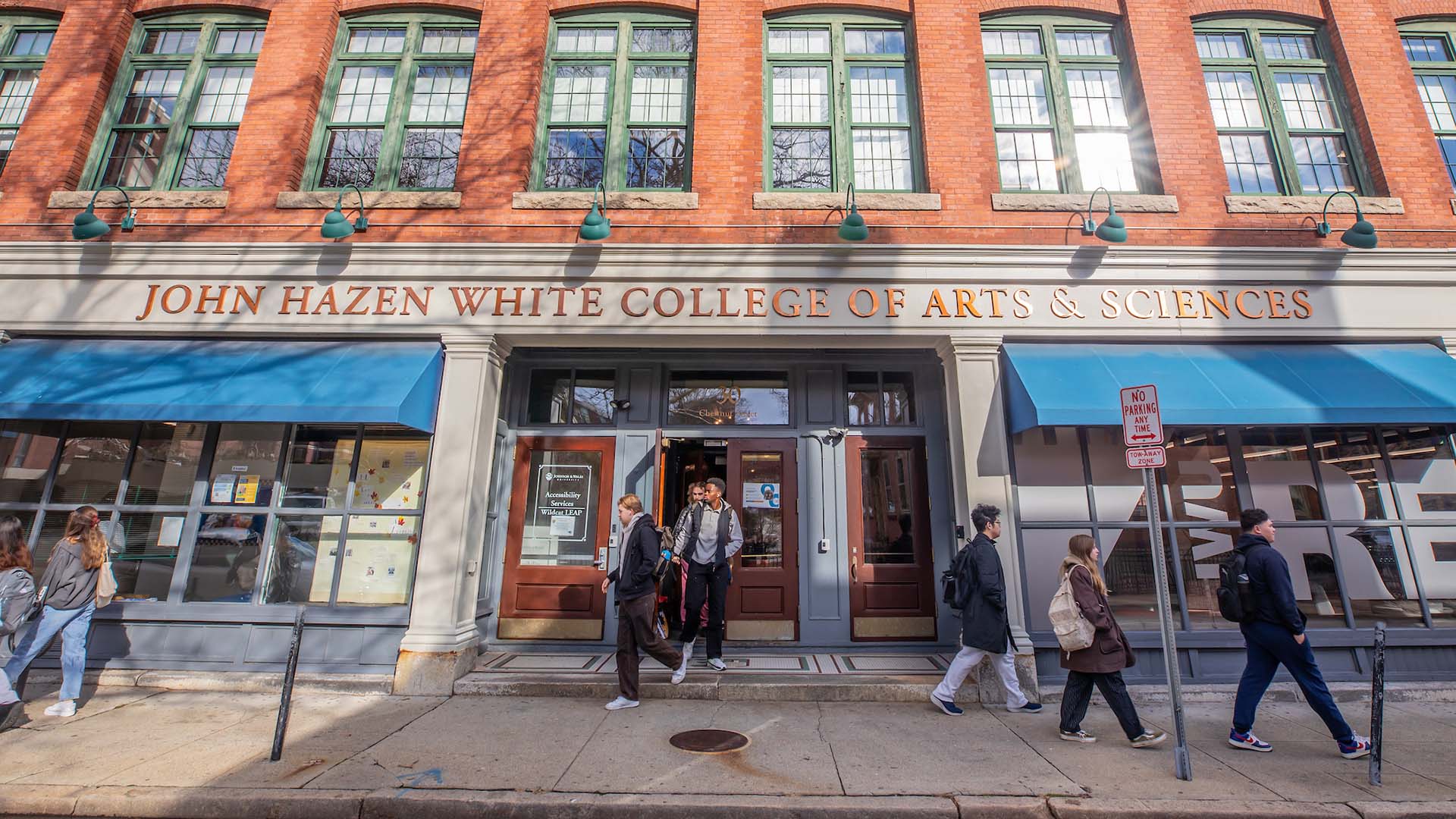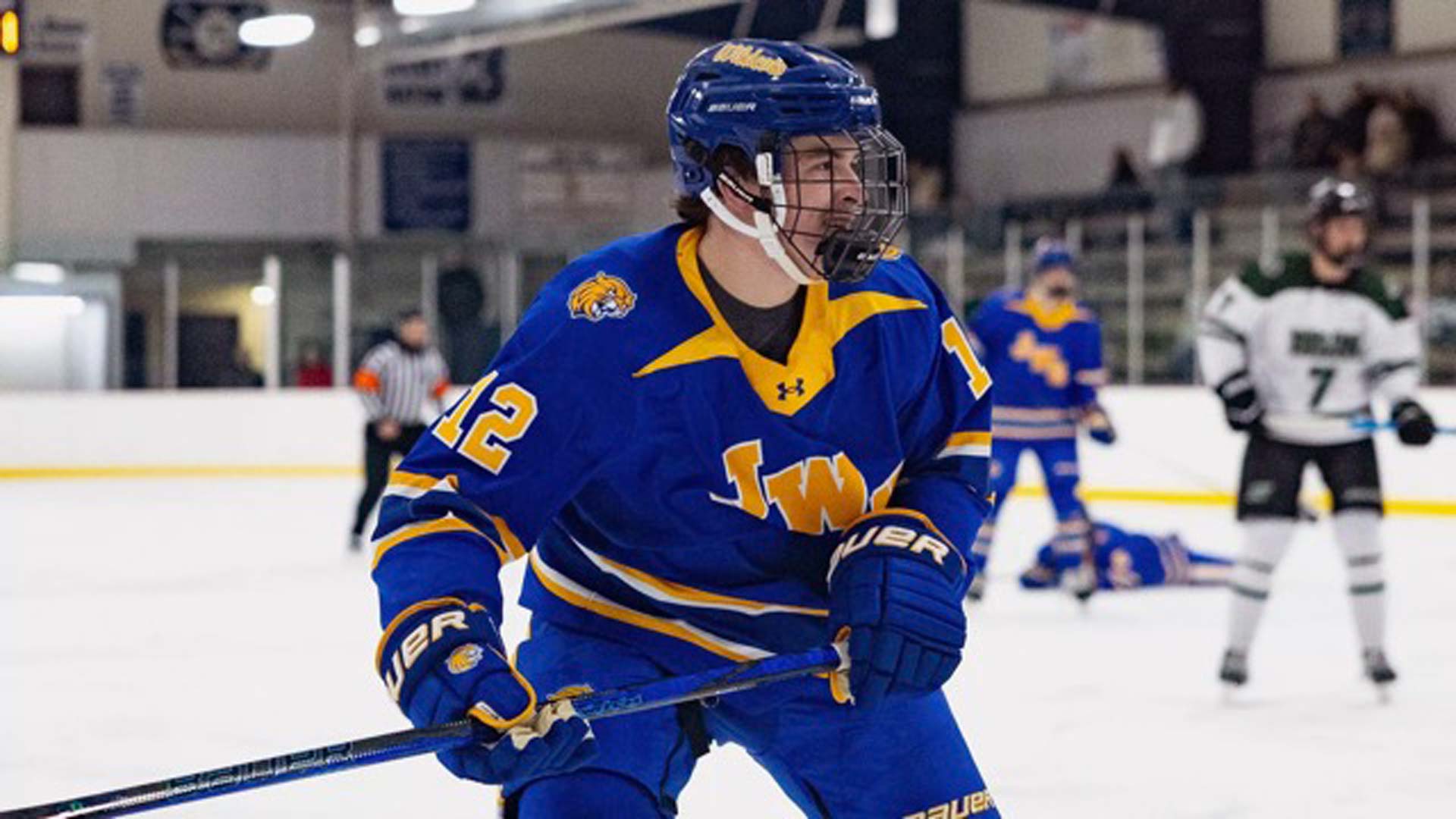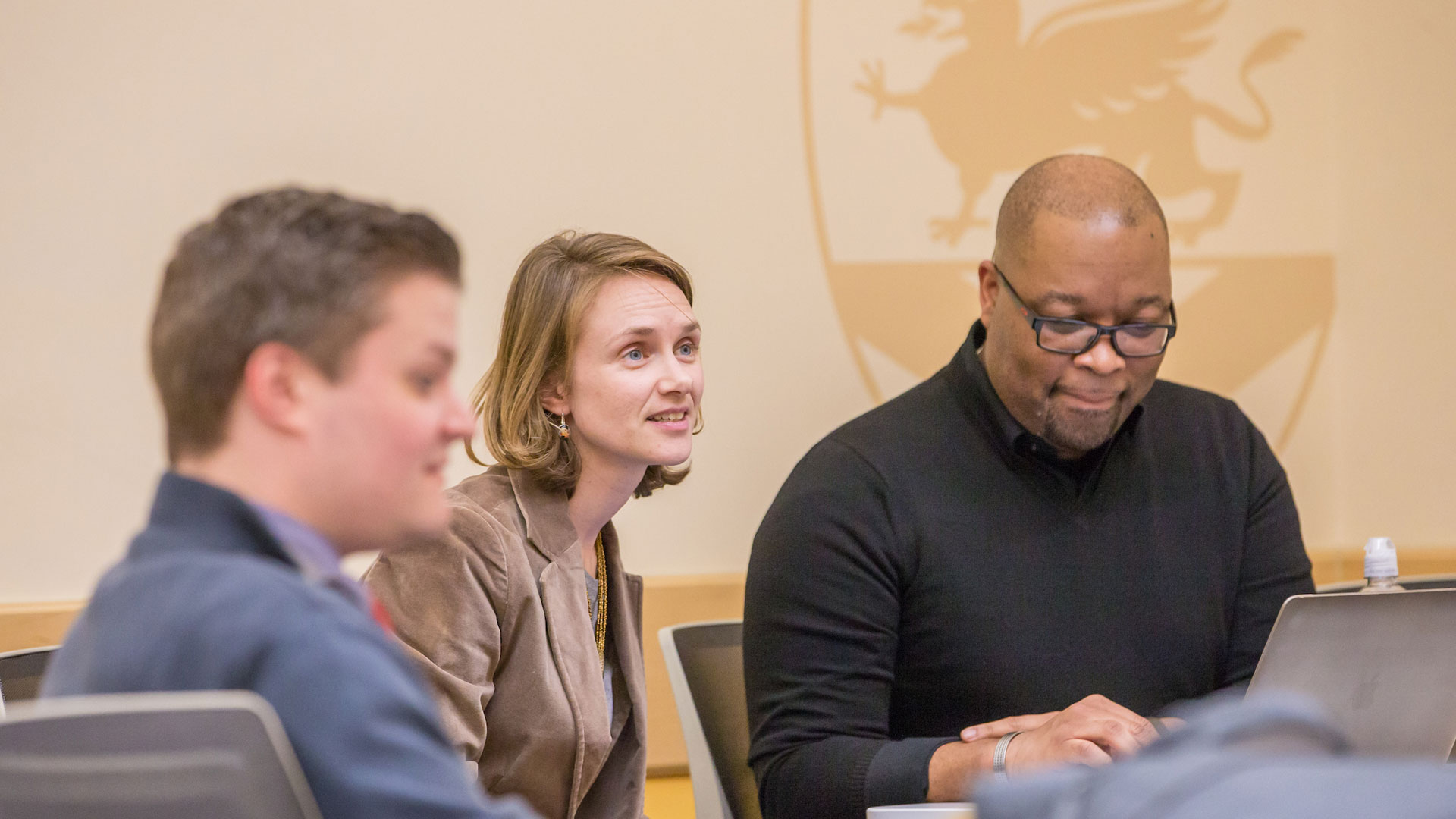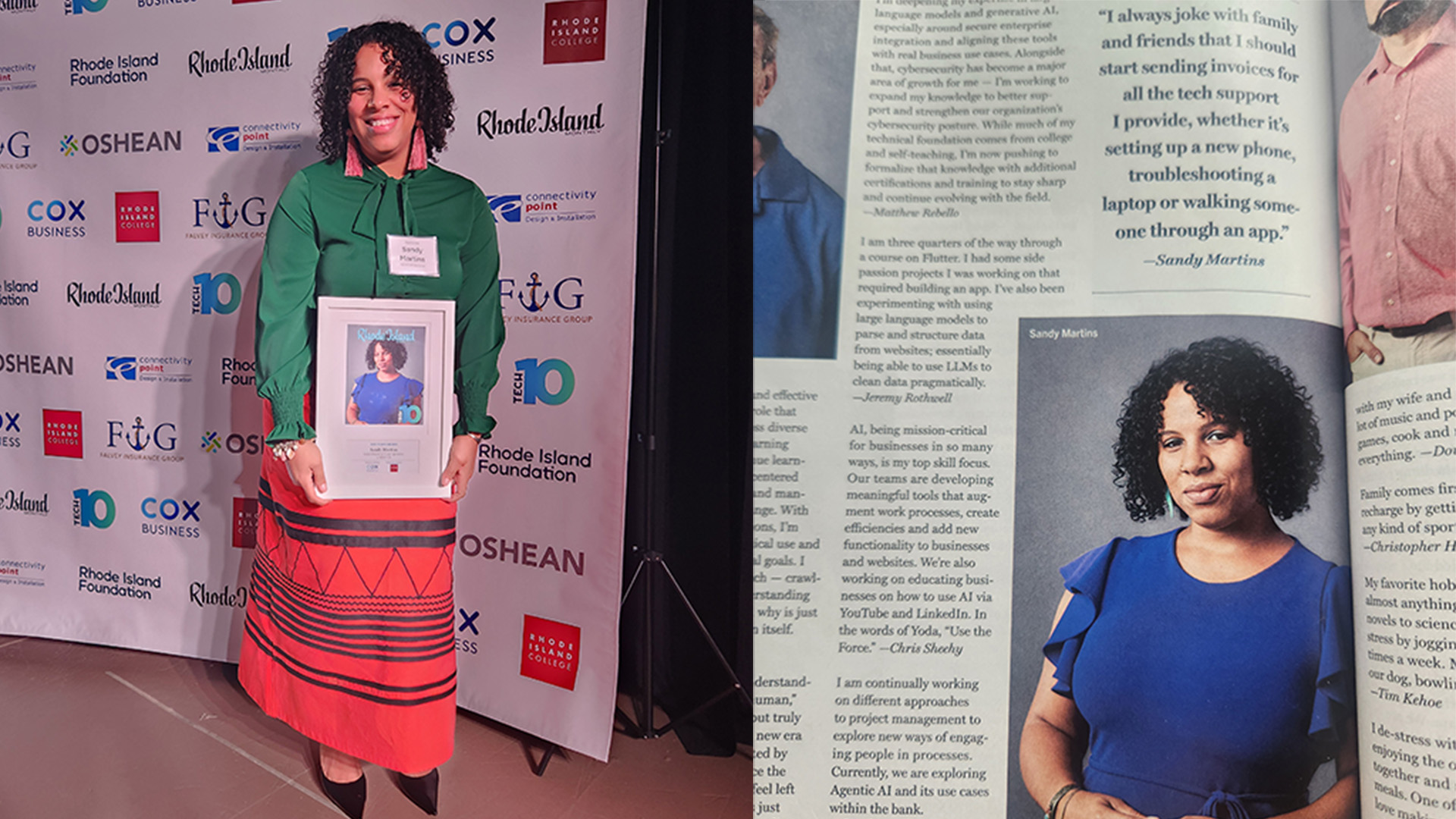UNICEF and JWU Forge Partnership Through Professor’s Advocacy
As a scholar and researcher of conflict zones and political violence, Associate Professor Kevin DeJesus, Ph.D., has seen firsthand how UNICEF helps those who have been forced to endure atrocities — and discovered that people experience a common humanity that global politics can never destroy. These circumstances inspired DeJesus to aid UNICEF in its humanitarian efforts and add another title to his impressive résumé: UNICEF USA advocacy team lead.
What Is UNICEF?
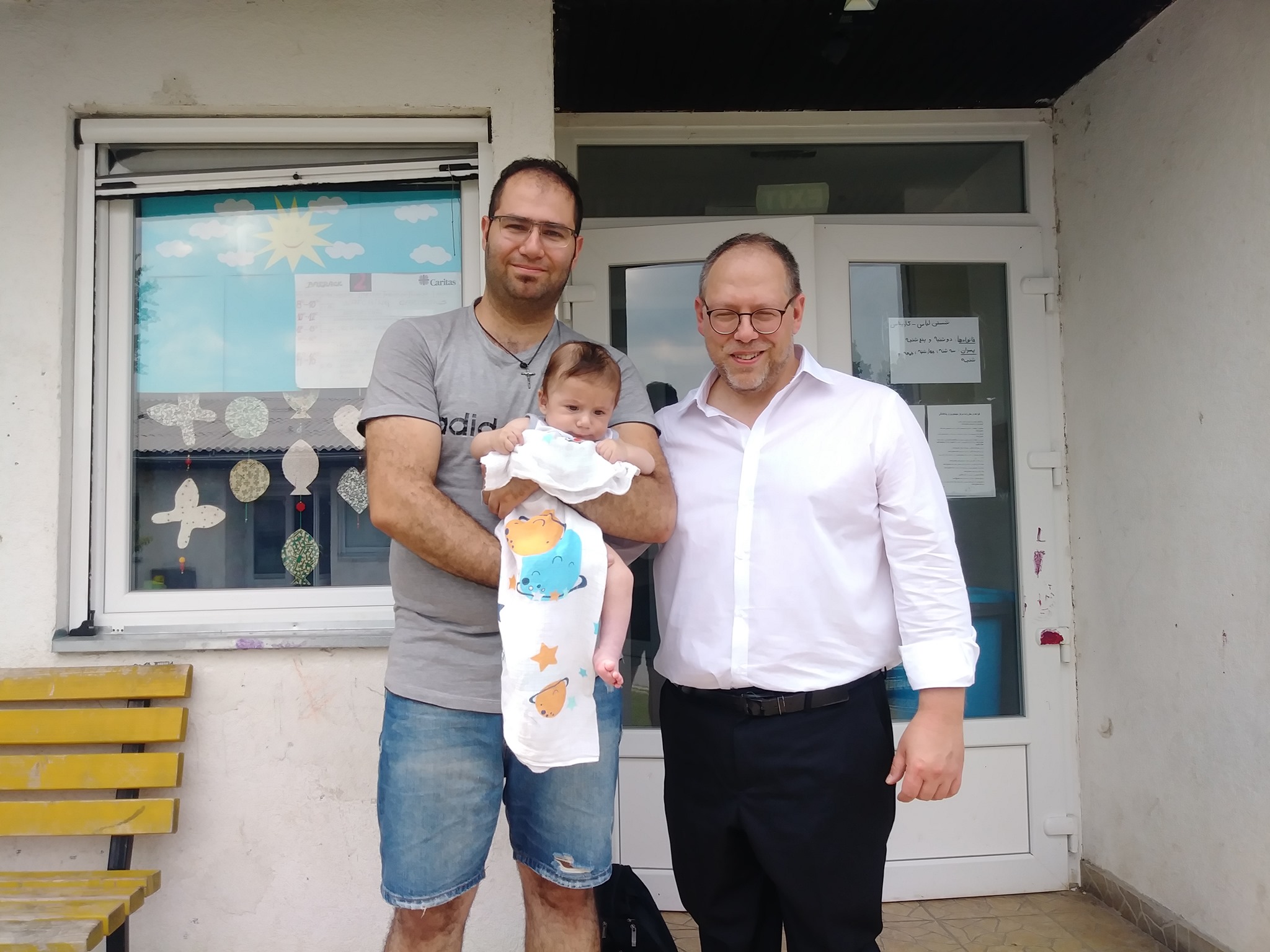
UNICEF was created in 1946 to bring emergency food and healthcare to children and mothers in countries devastated by World War II; since then, it has grown to address the long-term needs of children and women in developing countries through fundraising, advocacy and education. UNICEF USA’s manager of community engagement, Anita Lederer, invited DeJesus to apply to be an advocacy lead for the state of Rhode Island. Instead, in July it appointed him as an advocacy team lead for the northeast region. This yearlong position allows the professor and his students to engage in thought leadership and gain firsthand industry experience.
Advocacy Team Lead Goals
DeJesus’ goal is to expand the perception of humanitarian aid beyond dropping food packets to supporting whole individuals and addressing worldwide mental health needs. To do this, he is promoting the Mental Health in International Development and Humanitarian Settings (MINDS) Act, which backs mental health and psychosocial support as a key component of U.S. foreign assistance. UNICEF reports that more than 14% of children worldwide have a mental health disorder, but less than 1% of funding on global health addresses children’s mental health and well-being.
Another goal is to educate students and other members of JWU community about UNICEF’s critical work in the world and the ways in which it makes a difference on the ground. This work includes combatting conflict displacements, impoverishment and underdevelopment; increasing response capacity for emerging humanitarian crises; and providing natural disaster emergency relief in which our community and affected communities acknowledge their symbiotic relationship and see a place for themselves.
“I’m grateful that JWU fully supports this kind of professional engagement, particularly as it opens opportunities for our students.”
In this position, DeJesus oversees two advocacy cycles. Volunteers, including JWU students, campaign during the annual spring Advocacy Day for the U.S.’s annual budget allotment. This year the team successfully advocated for a budget increase due to COVID-19 and the Ukraine crisis. DeJesus and his group also advocated on behalf of the Keeping Girls in School Act, meeting over Zoom with Sen. Jack Reed, Rep. David Cicilline, and the legislative staff of Sen. Susan Collins. The second advocacy cycle occurs in August before the congressional recess — to encourage legislators to sign onto or help craft bills of interest.
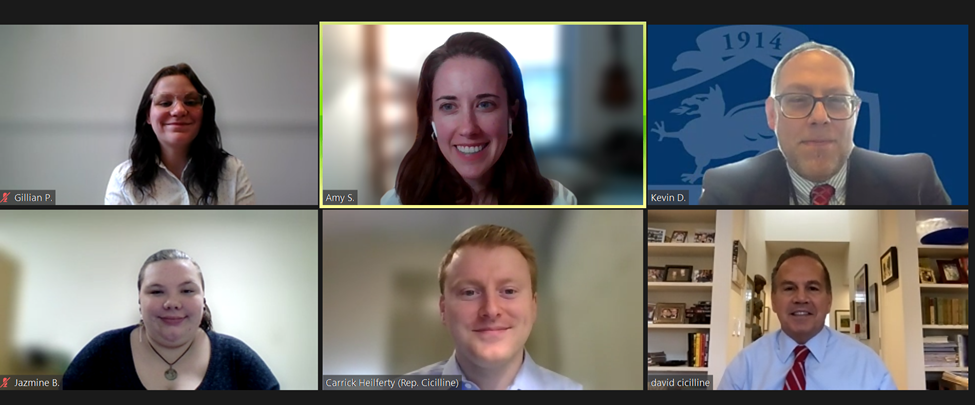
DeJesus joins two other northeast advocacy leads and has been assigned to oversee Connecticut, Rhode Island, Maine and Pennsylvania for fiscal year 2023. His duties include training advocates to lobby for the upcoming year’s bills, budget and whatever legislation comes their way.
“This provides a fantastic opportunity for JWU students to not only help improve the human condition in a very concrete way, but it also empowers them politically through interaction and engagement with the community and its leaders,” says DeJesus. “It’s a great resumé-building experience, especially for those interested in politics, public policy, humanitarianism, government and social justice.”
Student Involvement
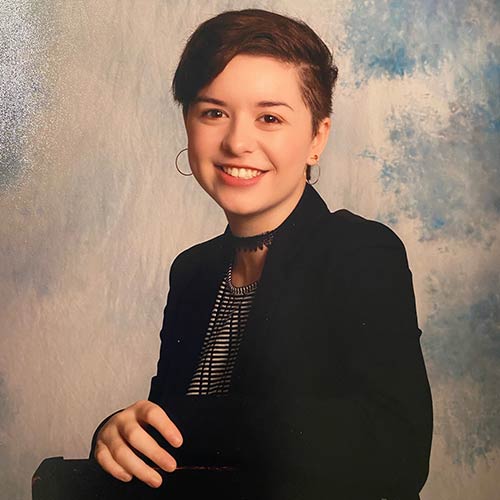
Ashlynn Kirrane ’25 is one of those students. The sophomore political science major and community justice minor is an aspiring legislator and president of the Student Government Association. She is sharpening the advocacy skills needed to be an effective and successful leader for the student body — and ultimately for the world.
Working alongside other young activists within UNICEF, she is learning to communicate with those in public office — educating her elected officials of UNICEF’s goals and priorities, conveying how much their community values UNICEF’s work, and asserting that it deserves appropriate attention and funding. Kirrane shares a similar mission with UNICEF; she founded Connecticut Advocates for Family Court Reform, which supports and advocates for the child victims of the family court system.
“By getting involved with a worldwide organization that continuously fights for the rights of children like UNICEF, I can gain valuable experience speaking with lawmakers about child safety,” she explains.
JWU UNICEF Student Club
To help students like Kirrane become global citizens and reach their professional goals, JWU has partnered with UNICEF USA to create an official UNICEF USA student club. The club will follow a detailed year-long curriculum that empowers all students to learn about global humanitarian issues with educational resources and hands-on activities. UNICEF will see JWU students in action and discover the many dimensions in which the university is helping people in need.
“JWU students will examine political, psychological and economic perspectives in a world that they will one day control and inherit,” says DeJesus. “They are a step ahead in applying what they learned in the classroom and will get their hands dirty figuring out how to make issues like healthcare relevant to everyday life.”
JWU’s Time-Tested Approach to Experiential Education
The university’s curriculum and multimedia approach help students engage with the world in close ways that lead to understanding while opening their minds to career opportunities. Initiatives like DeJesus' with UNICEF and the resulting JWU UNICEF student club meet the parameters of JWU 360, a holistic student experience that builds upon the tenets of Nutrition & Wellness, Experiential Learning, Academic Exploration & Discovery, and Social & Community Responsibility.
“This provides a fantastic opportunity for JWU students to not only help improve the human condition in a very concrete way, but it also empowers them politically through interaction and engagement.”
“Associate Professor DeJesus’ work with Ashlynn and others is a wonderful example of how we prepare students to pursue meaningful work that makes a difference in their world,” explains Michael Fein, Ph.D., dean of the John Hazen White College of Arts & Sciences. “Students reflect on complex, layered problems, while drawing on our time-tested approach to experiential education.”
A Deepened Sense of Their Own Human Experience
In DeJesus’ human rights, public policy and politics of social justice courses, guest speakers from organizations such as UNICEF and the United Nations help students understand their impact and provide a fuller picture of what international relations encompasses — from the struggle to forge a peace agreement to bringing displaced people back after a several years of armed conflicts.
DeJesus shares tales with students about his years studying how people, through no fault of their own, survive harrowing experiences such as the loss of homes and jobs, health crises, and threats of persecution for belonging to ethnocultural or religious minority groups. He even lived in a refugee camp in Beirut, Lebanon, for five months as part of his doctoral research. No matter the location, displacement camp residents welcomed him, fed him despite a lack of resources, and shared their stories.
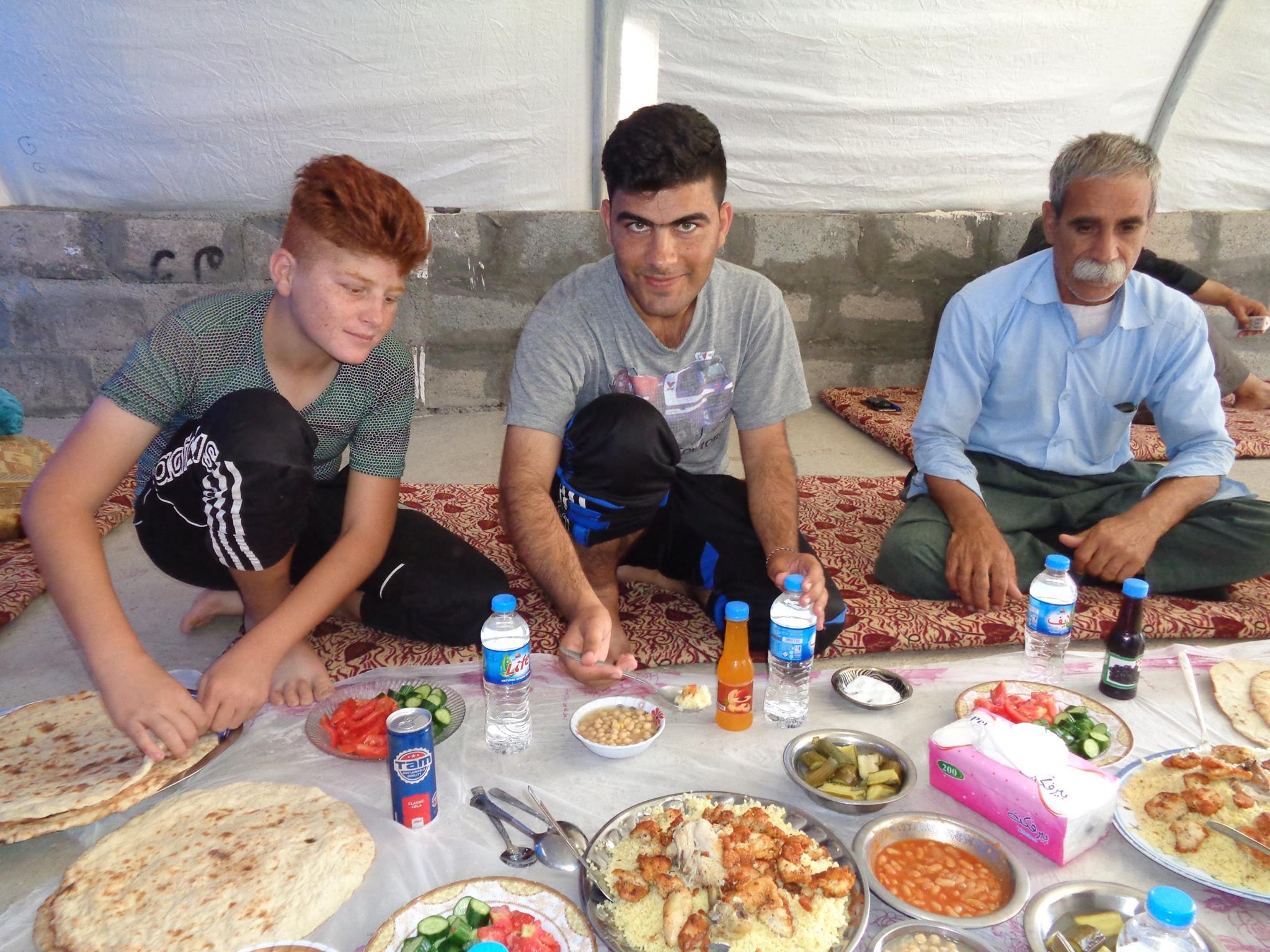 Ari Habeeb, a civil servant with the United Nations High Commission of Refugees (UNHCR), says, “We were delighted to meet with Professor Kevin DeJesus to support his efforts to learn as much as possible about the complex situation of the displaced persons driven out of their communities by ISIS attacks; to visit with individuals, families, and young people whom we serve; and to meet with staff from our agency to get a nuanced view of how the UNHCR, humanitarian [nongovernmental organizations], and local governments provide enduring, sustaining supports to refugees here in Iraqi Kurdistan and across the globe.”
Ari Habeeb, a civil servant with the United Nations High Commission of Refugees (UNHCR), says, “We were delighted to meet with Professor Kevin DeJesus to support his efforts to learn as much as possible about the complex situation of the displaced persons driven out of their communities by ISIS attacks; to visit with individuals, families, and young people whom we serve; and to meet with staff from our agency to get a nuanced view of how the UNHCR, humanitarian [nongovernmental organizations], and local governments provide enduring, sustaining supports to refugees here in Iraqi Kurdistan and across the globe.”
By learning of the extreme situations in countries such as Liberia, Ukraine, Syria and Colombia — and hearing firsthand about what refugees their own age or younger have endured — students deepen their sense of their own human experiences. This prepares them to be good roommates, friends and peers to young people whose families may still be living in conflict zones.
“Everyday interconnections with our very globalized world take on all kinds of forms,” DeJesus adds. “I’m grateful that JWU fully supports this kind of professional engagement, particularly as it opens opportunities for our students. Johnson & Wales is the opportunity university; its focus on being powered by purpose and its commitment to making global citizens makes this combination work so well.”
Related Reading
Inspiring Wildcat: Ashlynn Kirrane '25
